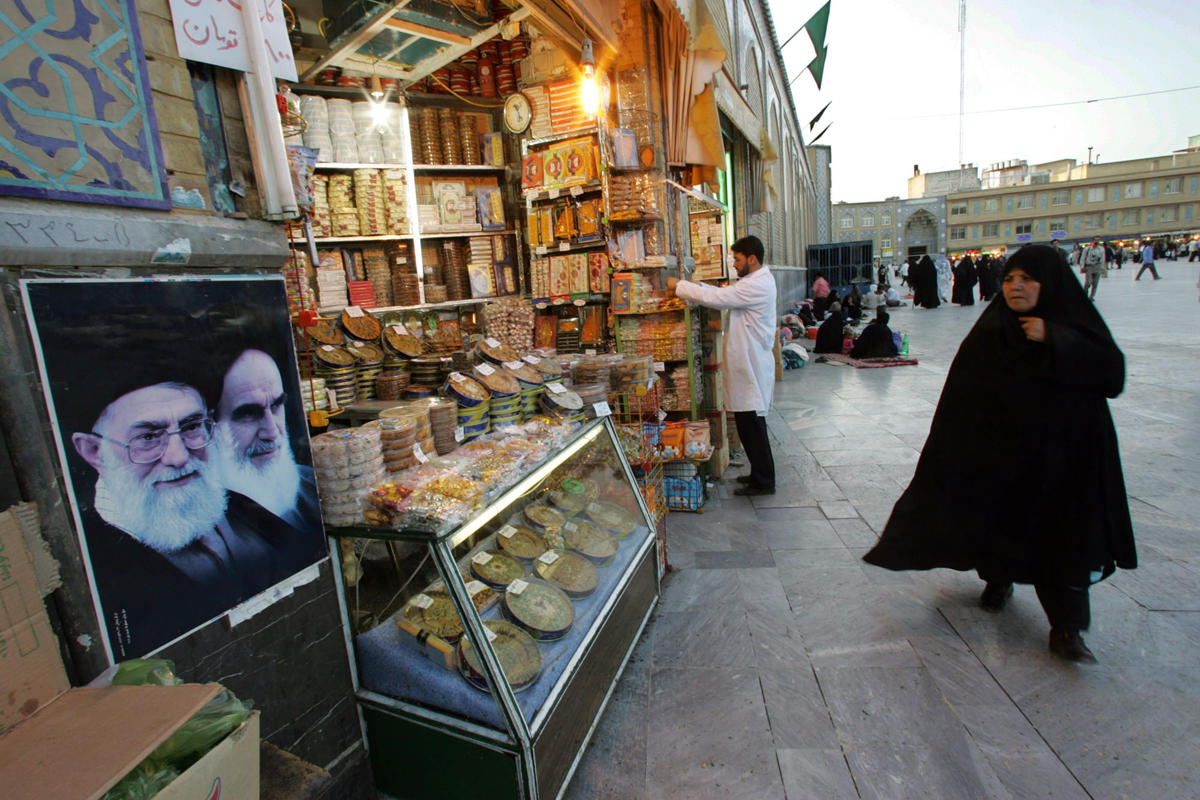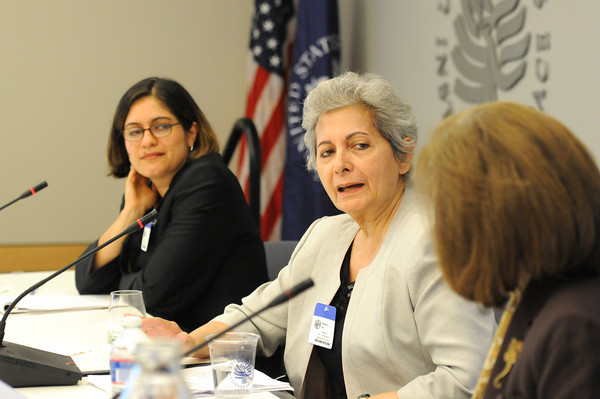A group of Iran analysts previewed their latest research findings in a discussion at the U.S. Institute of Peace co-sponsored by the Woodrow Wilson International Center for Scholars on June 27, 2012. Drawn from USIP’s Iran Internal Politics Study Group, six scholars looked at the recent dramatic changes in Iran’s political system and offered their take on what these changes mean for the country, its reform movement, and the United States.

“The Iran of today is not the Iran of 10 or 15 years ago,” said USIP’s Daniel Brumberg as he opened the discussion. “There has been centralization, but a bargaining process still remains. The system is moving in different ways at different levels.”

(Pictured above, left to right: Shadi Mokhtari, Mehrangiz Kar, Haleh Esfandiari)
According to Brumberg, the office of Supreme Leader Ayatollah Khamenei has expanded its powers, and a “new elite” of rural citizens and war veterans has emerged in Iran’s government to challenge the traditional political class. These and other dynamics are shifting Iran’s political and security establishments; making sense of these long-term trends is the goal of the Iran Study Group, said Farideh Farhi. Farhi co-directs the study group with Brumberg.
Other panelists included Mehrangiz Kar, whose comments focused on the rule of law in Iran; Shadi Mokhtari, who analyzed the discourse and extent of human rights critiques of the government; Kevan Harris, who studied the ways Iran’s welfare policies both empower and control its citizens; and Mehrzad Bourouijerdi, who mapped the extensive connections between Khamenei’s office and the rest of Iran’s government.
Bernard Hourcade, a visiting public policy scholar at the Woodrow Wilson Center, commented on the presentations by the Iran Study Group experts. Hourcade noted the importance of analyzing demographics and geography in addition to assessing Iran’s political dynamics. The director of the Wilson Center’s Middle East Program, Haleh Esfandiari, moderated each of the three panels.
The Iran Study Group’s findings are scheduled to be released in a book in late 2012.
Explore Further
- Learn more about the USIP Iran Internal Politics Study Group
- Browse USIP's Iran resources